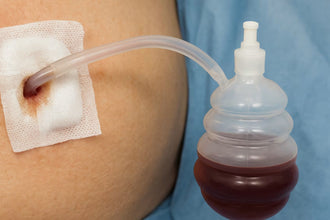
Scar Cream for Sensitive Skin: What to Look For and Avoid
Introduction
It is paramount to select the right scar cream when it comes to scar care, especially for sensitive skin. This is because sensitive skin gets easily irritated and reddened, as well as susceptible to allergic reactions, all of which is not beneficial for the healing of the scars.
Sensitive skin irritates easily when exposed to substances such as cosmetics, weather changes, stress, etc. This type of skin is often characterized by symptoms like redness, itching, or dryness, which develop more when it comes into contact with substances that are quite abrasive.
When a scar forms, the skin's defense mechanism is broken down, and so, the healing process of a patient is dependent on the quality of the creams prescribed for the treatment of the scar. The right cream shouldn't make the skin more sensitive to inflammation.
Ingredients to Look for in Scar Creams for Sensitive Skin
To know the best scar cream for sensitive skin, it is advisable to first check the ingredients on the labels. Some of the beneficial ingredients are as follows:
Silicone

This is a highly recommended component for scar treatment for many reasons. For one, silicone can create a barrier on the skin and helps keep moisture and the protective layer of the skin intact. Silicone creams can also be effective in reducing the redness, itching, and discomfort associated with the scar. It is non-irritant and sensitive skin is not affected by it.
Panthenol (Provitamin B5)
This compound is a moisturizing agent and also has an anti-inflammatory effect. As it stimulates the formation of new tissue, it is useful in diminishing the prominence of scars. It is also very gentle on the skin, inducing a relaxed state, which is perfect for those with sensitive skin.
Allantoin
This is known for its moisturizing and skin-soothing properties and for softening the skin. It is important in breaking down the scar tissue, thereby enhancing the skin texture. Allantoin also has a role in reducing inflammation and is very common in products that are meant for use on sensitive skin.
Hyaluronic Acid
This is a powerful hydrating agent that holds moisture in the skin. For those with sensitive skin especially, moisture is crucial to reducing irritation and speeding up the healing of scars. Creams containing hyaluronic acid will better moisturize the scar area, improving its healing.

Ingredients to Avoid in Scar Creams for Sensitive Skin
Fragrances and Essential Oils
While perfumes and oils can give scar creams a pleasant smell, they can also cause skin irritation, especially for sensitive skin. Some of these ingredients may lead to inflammation, rashes, and other allergic effects on the skin. Our recommendation is to avoid products that list fragrance or perfume among their ingredients.
Alcohol-Based Ingredients
Alcohols, especially drying alcohols such as ethanol or isopropyl alcohol, are known to cause dryness and irritation of the skin. For people with sensitive skin, it is worthwhile to avoid using scar creams that contain alcohol and alcohol-based ingredients.
Retinoids and Strong Exfoliants
Retinoids and strong acid exfoliants – including glycolic or salicylic acids – are common in skincare products for resurfacing. Yet, for scar creams designed for sensitive skin, these ingredients are too strong and may lead to irritation of the skin around the scar or even make it look worse.
Parabens and Other Preservatives
While parabens are widely used in cosmetics, they can cause rashes in those with sensitive skin. Apply scar creams that do not contain parabens to minimize the risk of skin irritation.
Lanolin
Lanolin is a natural emollient that is often used in skin products for its skin-softening properties, but it is also a common allergen that can cause contact dermatitis in some people with sensitive skin. Look for scar creams that do not contain ingredients that are known to cause allergies, such as lanolin.
| Ingredient | Potential Issue | Why to Avoid It |
|---|---|---|
| Fragrances and Essential Oils | Can cause irritation, inflammation, or rashes | These ingredients may lead to allergic reactions or worsen skin irritation |
| Alcohol-Based Ingredients | Causes dryness and irritation | Especially problematic for sensitive skin, leading to further irritation |
| Retinoids and Strong Exfoliants | May lead to skin irritation and worsen the scar | Strong acids like glycolic and salicylic can make the skin around the scar more sensitive |
| Parabens and Preservatives | Can cause allergic reactions | Widely used preservatives that may cause rashes and irritation in sensitive skin |
| Lanolin | Common allergen causing contact dermatitis | Though a natural emollient, it can lead to skin allergies for some people |
Tips for Choosing the Proper Scar Cream for Sensitive Skin

Identifying a good scar cream for sensitive skin is a bit more complicated than simply inspecting its ingredients. Here are some practical tips to help guide your selection process:
-
Opt for hypoallergenic formulations. The ones that are labeled as hypoallergenic do not contain some of the common irritants and allergens that could be present in other products.
-
Conduct a patch test. When using a new scar cream on a large portion of your skin, do a skin test on a small area of your skin first. This will allow you to avoid potential adverse reactions to the product in question.
-
Look for clinical evidence. Go for scar creams that have undergone clinical trials and have proven their ability to work without compromising the skin’s sensitivity.
-
Avoid multipurpose products. Although products that offer multiple functions seem to be more convenient, they usually have a higher concentration of ingredients that can cause redness and inflammation for people with sensitive skin. This is why it is advisable to use products that have been specially formulated for scar removal.
-
Consider texture and consistency. When it comes to sensitive skin, people usually prefer using creams that are light and non-sticky as these do not block the pores, as blocked pores can lead to breakouts.
Recommended Scar Cream Application Practices
It will be just as important to apply the scar cream properly just as it is to select the most appropriate product. To ensure the best results, follow these guidelines:
-
Cleanse the area gently. The first thing to do is cleanse the scar area using a gentle and fragrance-free cleanser. This helps eliminate any form of dirt, oils, or bacteria that may in any way lead to inflammation.
-
Apply in thin layers. When it comes to scar creams, a little is enough; one need not use a lot of it. Always use a finger to apply the product on the affected area and make sure to apply it gently and in circular motions to increase the absorbency of the product.
-
Protect from sun exposure. It is necessary to protect the scars from UV rays to avoid the development of hyperpigmentation. If you are going to be out in the sun then you can apply the scar cream and then cover it with a broad-spectrum sunscreen with at least an SPF of 30.
-
Be consistent. It is important to note that in scar treatment, consistency is key. Strictly follow the set regimen to see the desired change, which may take a few weeks to a few months.

| Step | Importance | Best Practices |
|---|---|---|
| Cleanse the area gently | Removes dirt, oils, and bacteria that can cause inflammation | Use a gentle, fragrance-free cleanser before applying the cream |
| Apply in thin layers | Ensures even absorption and avoids clogging pores | Use a small amount and apply gently in circular motions to increase absorbency |
| Protect from sun exposure | Prevents hyperpigmentation and promotes better healing | Use a broad-spectrum sunscreen with at least SPF 30 to protect the scar from UV rays |
| Be consistent | Regular application is key to seeing results | Follow the prescribed regimen strictly to observe improvement over time |
Evaluating the Effectiveness of Scar Creams for Sensitive Skin
There are so many factors that determine the effectiveness of a scar cream for sensitive skin, such as the type of the scar, the age of the scar, the skin type of an individual, and how often they apply the cream on the scar. Here's a brief guide to help you evaluate whether a scar cream is working effectively on sensitive skin:
-
Reduced redness and irritation. The first noticeable effect of scar cream is the reduction of redness and inflammation around the scar, especially apparent with sensitive skin. This not only helps the scar blend more seamlessly with the surrounding skin but also alleviates any discomfort or sensitivity that might be associated with the healing process.
-
Improved texture and softness. A good scar cream is supposed to eventually assist in reducing the texture of the scar and softening the skin surrounding it. This is particularly the case for raised or thickened scars that are keloid in nature.
-
Minimal allergic reactions. To those with sensitive skin, a good scar cream shouldn't cause reactions like itching, burning, or rashes. Instead, it should nourish the skin, allowing it to heal without introducing further irritations. If you experience these issues in your recovery, we recommend you consider changing to a less harsh product.
-
Consistent improvement in scar healing. Scar cream's effectiveness cannot be judged by its first application. Continued use over several weeks should yield steady improvements, especially on sensitive skin, rather than fluctuations in appearance or condition.
Conclusion
When it comes to sensitive skin, especially with scar care, less is more. The right scar cream will soothe, not inflame. Ingredients like silicone work gently to heal without irritation, while fragrances, alcohol, and lanolin should be avoided. Sensitive skin also requires care that's thoughtful and minimal.
Choose lightweight, non-sticky creams, and be patient – healing takes time. Protect your skin from the sun, apply thin layers, and watch the improvements usher in. Your skin deserves peace, not a battle, and with a little more thought of what to look for and avoid in a scar cream, you can achieve just that.
References:
https://www.ncbi.nlm.nih.gov/pmc/articles/PMC5595600/
https://www.ncbi.nlm.nih.gov/pmc/articles/PMC10298615/
https://www.ncbi.nlm.nih.gov/pmc/articles/PMC3583886/
https://www.ncbi.nlm.nih.gov/pmc/articles/PMC8243994/
https://www.jaad.org/article/S0190-9622(09)01349-8/fulltext
General Disclaimer: All information here is for educational purposes only and is not meant to cure, heal, diagnose nor treat. This information must not be used as a replacement for medical advice, nor can the writer take any responsibility for anyone using the information instead of consulting a healthcare professional. All serious disease needs a physician.















